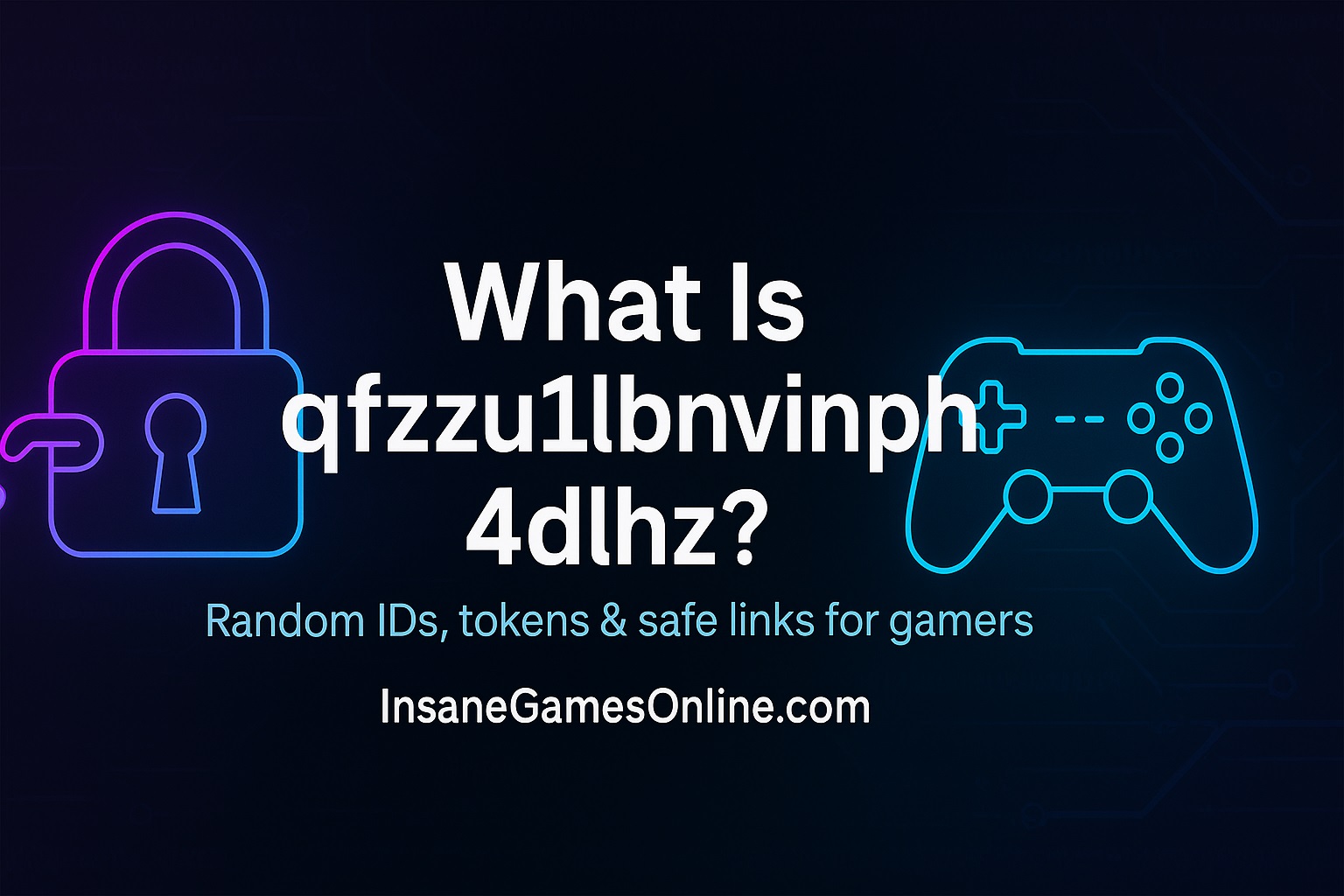“qkfzzu1lbnvinhp4dlhz” looks like scrambled letters on purpose. It’s a unique identifier (ID), token, or key computers use to label or protect stuff—files, accounts, carts, downloads, or saved game progress. It’s not a word you remember; it’s a behind-the-scenes code that keeps things organized, traceable, and hard to guess.
Why Does It Look So Weird?
Because it isn’t meant for humans to read.
These strings are:
-
Randomized → nearly impossible to predict or brute-force.
-
Unique → prevents clashes (two users or files with the same name).
-
Machine-friendly → computers handle IDs better than human words.
Think of it like a serial number for digital stuff.
What Is It Used For?
You’ll meet IDs like this all over the web (even if you never notice them):
-
URLs & Routes – ?id=qkfzzu1lbnvinhp4dlhz uniquely points to a post, order, or cart.
-
Access Tokens – temporary keys for email verification, password resets, or API calls.
-
File Names in the Cloud – prevents overwriting and guessing direct file links.
-
User/Internal IDs – platforms identify you by a safe, unique ID, not your nickname.
-
Integrity Checks – downloads and game assets can be verified to stop tampering.
Security 101: Helpful, But Not the Whole Lock
These strings support security but don’t replace it. They work best alongside:
-
HTTPS for encrypted transport,
-
proper authentication/authorization,
-
rate limiting & monitoring,
-
token expiry and least-privilege rules.
They make links harder to guess and resources easier to track, but passwords and encryption still do the heavy lifting.
Real-World Examples You’ve Probably Seen
1) Email Links
Verification or password-reset links carry a unique token (looks like our mystery string). Only the server knows what it unlocks and for how long.
2) Online Shopping
Your cart and order get their own IDs so only you can fetch or modify them. That reduces mix-ups and blocks tampering.
3) Cloud Storage
Photos and saves get renamed with unique IDs to prevent collisions and discourage link guessing.
4) Installers & Downloads
Apps check signatures or hashes before installing. If the code doesn’t match, the install stops—protecting your device.
How It Connects to Gaming on InsaneGamesOnline
On a gaming site, identifiers like this can help to:
-
Map saved progress to the right session or profile,
-
Tie scores/inventories to the correct player,
-
Keep sessions separate when thousands of players are active,
-
Reduce cheating by validating requests and assets.
You won’t usually see the code—but it quietly keeps your play smooth, your progress intact, and your session distinct from everyone else’s.
Reminder: a random ID isn’t your password. You don’t type it; the system generates and validates it in the background.
Is It the Same as a Password?
No.
-
Password: human-made, typed by you.
-
ID/Token: machine-generated, used invisibly.
Tokens often expire and can encode scopes/permissions, which makes them safer for temporary access.
Why Is It So Hard to Guess?
-
Length + entropy create astronomical combinations.
-
No human patterns (no words, dates, or keyboard walks).
-
Server validation: even if someone stole a token, context checks and expiry limit what it can do.
Will This Still Matter in the Future?
Absolutely. As more devices (PCs, phones, consoles, smart TVs, even IoT) connect to game platforms, unique IDs and tokens remain essential for:
Quick Glossary (Speed-Learn)
-
UUID: standard format for unique IDs (e.g., 550e8400-e29b-41d4-a716-446655440000).
-
Hash: a fingerprint of data used for integrity checks (not the same as encryption).
-
Token: an access key, usually time-limited and permission-scoped.
-
Session ID: temporary identifier that ties your actions to your current visit.
FAQ
Q1: Can I replace these with friendly names?
For UI, yes. For backend safety and scale, keep strong unique IDs.
Q2: What if someone guesses one?
With proper length and cryptographic randomness, probability is tiny—and server rules (rate limits, expiry, scopes) add more protection.
Q3: Is “qkfzzu1lbnvinhp4dlhz” a hash?
Not necessarily. It could be an ID, a token, or a hash. The look alone doesn’t tell you the function.
Q4: Do these IDs store personal info?
Good practice says no. They should reference data stored securely server-side, not embed sensitive info.
Q5: Are tokens safe to share?
Treat them like keys. Assume no—they can grant access while valid.
Wrap-Up
“qkfzzu1lbnvinhp4dlhz” looks meaningless, but that randomness is exactly why it’s useful. Unique IDs and tokens quietly keep your sessions separate, your progress tied to you, and your downloads intact—so you can focus on what matters: playing on InsaneGamesOnline.
















